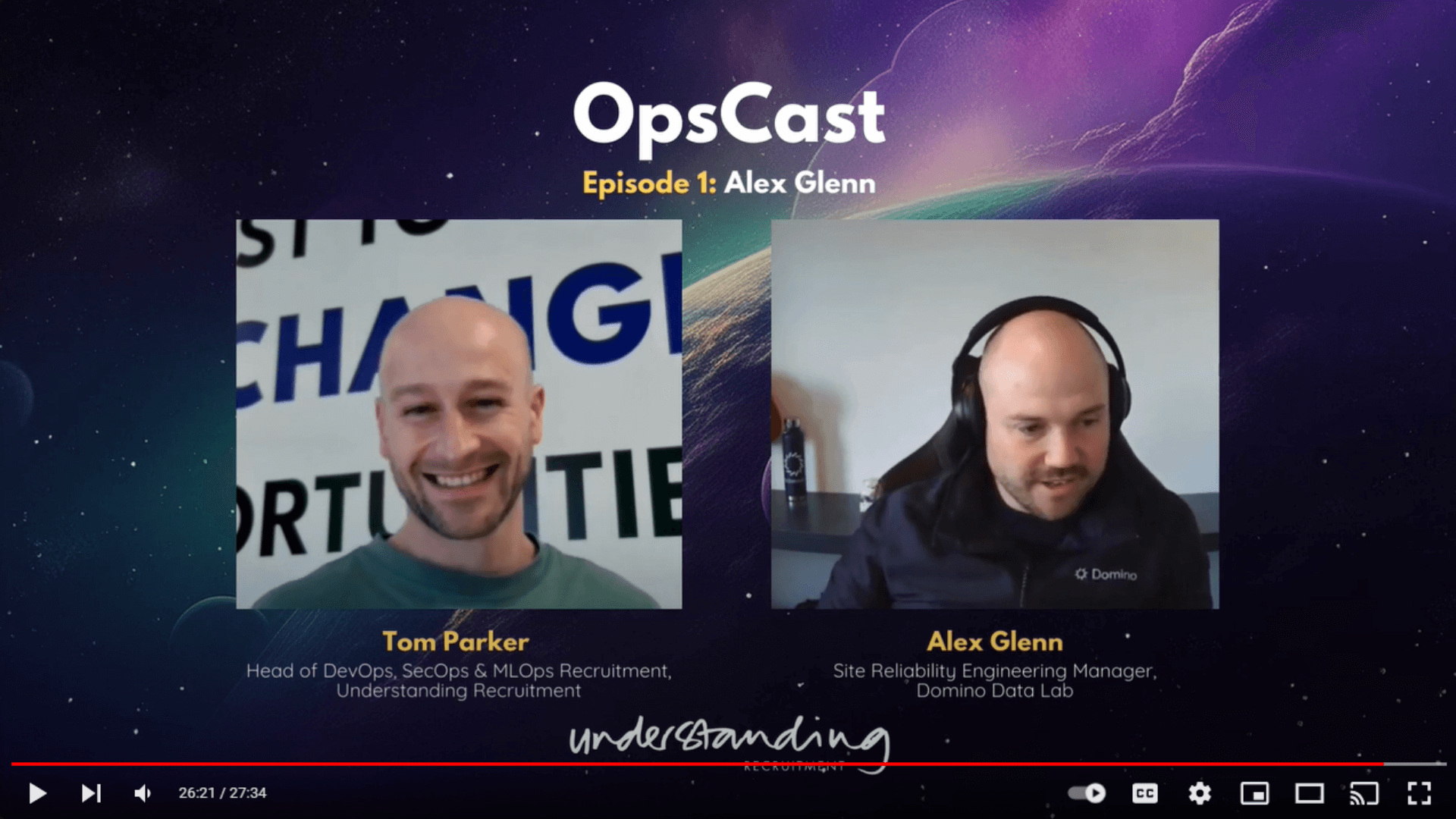
Our Comprehensive Guide to Golang Vs Rust
29th August, 2023 10 min
As society becomes dependent on modern technology to automate and optimise everyday tasks, the role of computer programming has never been more essential. Classic languages like JavaScript and Python have been at the forefront of computer programming for many years, but today, these mainstays have to compete with increasingly popular alternatives. Two leading examples are Golang and Rust, and as these modern languages continue to establish themselves, the Golang vs Rust debate among the developer community rages on.
Golang and Rust each possess their own unique uses and merits, and a developer’s preference is typically based on what they wish to achieve. Before starting a project, it is vital to consider what programming features are important to your goals. Is it performance? Readability? Or perhaps you are security conscious and value safety?
In this guide, we aim to give you a clear idea of what these programming languages offer, and we’ll also explore the reasons behind hiring Golang and Rust developers.
Golang Vs Rust: The Overview
As an open-source programming language that allows developers to design scalable and secure software, Golang is becoming a go-to for many programmers. The language was created by Robert Griesemer, Rob Pike, and Ken Thompson, Google engineers who were looking for an alternative to C++. Since its launch in 2012, Golang has attracted programmers due to its reputation for simplicity, security, and speed. Given its esteemed reputation, it is no surprise that the likes of Netflix, Twitch, and Dropbox use it.
Like Golang, Rust is a programming language known for its high performance and safety. It is known for having better safety, concurrency, and performance features than Golang. However, it is harder to learn. Created to provide programmers with an alternative to C++ language, Rust was developed in 2010 with the sponsorship of Mozilla. The Stack Overflow Developer Survey from 2022 asked 80,000 developers what their most loved language is, and Rust came out on top. This research gives us an insight into Rust’s growing popularity and esteem among the developer community. Now you’ve had the overview, let’s dive deeper into the intricacies of the Golang vs Rust debate.
Golang Vs Rust: Comparing The Features
Golang and Rust are rising in popularity, and given the range of features and advantages that each offers, it is easy to see why. Deciding which one to learn can be tough, especially when both provide countless job opportunities for up-and-coming programmers. Features such as memory, safety, speed, and readability are crucial when it comes to evaluating programming languages, so let’s dive deeper into how Golang and Rust shape up when compared to each other on these metrics.
Safety
As is usually the trend with modern programming languages, both Golang and Rust prioritise memory safety. Older languages like C and C++ are prone to security issues and other vulnerabilities due to incorrectly accessing memory, while Golang and Rust are designed to better combat this problem. Though both excel in this aspect of programming, Rust is particularly security-conscious, so much so that it has features that identify bugs in code and block the compiling of incorrect programs. So, on the subject of safety, Rust holds the advantage.
Performance
Both Golang and Rust have esteemed reputations for producing speedy programs. While both languages have exceptional performance, Golang’s speed is hampered by its garbage collection mechanism. Rust offers the same level of efficiency as long-standing languages like C and C++ and provides memory safety and concurrency without sacrificing speed. Rust, therefore, comes out on top.
Concurrency
One of Golang’s biggest advantages over Rust is its concurrency. Support for concurrent programming is a feature that many languages can facilitate. However, Golang doesn’t need to rely on using operating system threads, it has its own lightweight thread, namely Goroutines. Through Golang, developers can run numerous goroutines simultaneously, making it suitable for designing concurrent applications such as web servers. Rust’s concurrency hasn’t quite hit the heights of Golang’s. So on this feature, Golang is the winner.
Simplicity
Ease of use is an important characteristic of any programming language, and there has recently been a pushback against increasingly complex languages such as C++. With minimal syntax and keywords, Golang has a relatively simple design that makes it perfect for programmers who want to write programs as quickly as possible. If you want to master Rust, there may be a steeper learning curve involved depending on the sort of experience you have.
Are you a skilled programmer looking for the latest Golang or Rust developer jobs? You can check out our latest roles here.
Should You Hire a Golang or Rust Developer?
Before you decide whether to hire a Golang or Rust developer, it is important to decide what you are looking for. If you want to develop a web application and need a language with a simple syntax, Golang may be the best option. Alternatively, Rust would be ideal if you need a language with great memory and safety features.
Why Hire a Golang Developer?
There are many reasons why hiring a Golang developer would benefit your business. Though Golang isn’t as widely used as JavaScript or Python, it is nonetheless an up-and-coming language, and many businesses are starting to acknowledge its potential.
Golang’s concurrency, exceptional performance, and safety features earned it a place on the Tiobe Index of Programming Language Popularity’s top-10 list. If you manage a business looking to future-proof your software, then hiring a developer with in-depth knowledge of Golang would be advantageous.
Golang is a versatile programming language that can be used for all manner of purposes. Despite having some drawbacks, such as being less descriptive and relatively young, it is still a reliable and exciting choice for developers who value simplicity. To give you an idea of what a Golang developer can do for you, here are just a few of the language’s uses:
Backend Development
Owing to its efficiency and scalability, Golang is perfect for backend development. Not only is it designed to streamline low-level operations, it is also capable of performing multiple tasks simultaneously. Concurrency is one of Golang’s most significant advantages, and popular web frameworks like Gin and Echo have benefitted from it.
On-Demand Services
In an era of online streaming where the appetite for on-demand services has never been greater, there is most certainly a need for speedy and secure programming languages. Golang is an ideal choice for programmers looking to design on-demand services thanks to its concurrent nature. A notable example of a company that uses Go to make its on-demand software as quick and user-friendly as possible is Uber.
Cross-Platform Development
Another reason why developers opt for Golang is its ability to run on multiple platforms. Whether you wish to build an application on Windows, Linux, or Mac, Golang has you covered. As Golang is an open-source language, developers are able to use a wide range of tools that make it all the more efficient. One example is Gotests, a handy tool enabling programmers to generate table-driven tests.
Why Hire a Rust Developer?
Recruiting a Rust developer into your team offers numerous advantages, particularly if you are working on projects requiring excellent performance, memory safety, and systems programming. Recognising the language’s bright future, big companies such as Dropbox, Microsoft, and Discord are devoting precious resources to Rust programming. There is a lot of belief in what Rust can achieve, and in 2021, the Rust Foundation was founded, a non-profit organisation committed to developing the language and the ecosystem,
While long-established languages such as Java, C++, and Python are still the favoured choices for many developers, Rust is fast becoming a mainstay of the programming world. What it lacks in age it more than makes up for in speed, security, and memory management. Its numerous benefits make it suitable for a range of programming uses, including:
System-Level Programming
Rust is ideal for system-level programming tasks like developing operating systems due to its memory security, low-level control, and efficiency. A key example of an OS written in Rust is Redox, a memory-safe microkernel operating system similar to Linux. A reliable option for developers who wish to build software that closely interacts with hardware, Rust can also be used for embedded systems and device drivers.
Web Development
Many developers use Rust for building web applications due to its outstanding memory management. Big tech companies like Microsoft, Amazon, and Dropbox have used the language to create their high-performance applications. Not only does Rust have impressive memory safety and concurrency, but it is also able to deal with high levels of traffic, features that make it perfect for web development.
Blockchain Development
Given that Rust is ideal for creating highly secure apps, it is no surprise that blockchain platforms like Polkadot and Elrond use this memory-safe language. For those involved in blockchain and cryptocurrency, the number one goal is to ensure that transaction records are as secure as possible, and that’s why an increasing number of blockchain networks choose Rust.

In this guide, we have delved into the comparisons between the features of Golang and Rust. We have also explored the reasons why employers may consider recruiting a Golang or Rust developer. Both languages have a lot of promise and potential, and if you are focused on creating code that you’ll be able to rely on for many years to come, then choosing either language would be beneficial. So, in the Golang Vs Rust debate, who are you rooting for?
Discover More About Our Work in Software Recruitment
At Understanding Recruitment, we are passionate about software recruitment. Through our expertise, we are adept at sourcing top-quality candidates for Golang and Rust developer jobs. If you’d like to learn more about our commitment to Golang and Rust recruitment, be sure to pay a visit to our dedicated vertical pages. Our consultants look forward to hearing about your recruitment goals, so contact us today.



